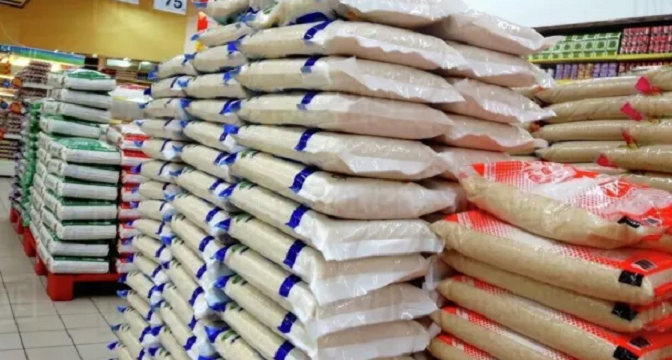
The Nigerian government has initiated the sale of 30,000 metric tonnes of subsidized milled rice at ₦40,000 per 50kg bag to help alleviate rising food prices and support citizens during challenging economic times. The sale, flagged off by President Bola Tinubu’s administration, mandates that all buyers present a National Identification Number (NIN) to access the subsidized rice.
Speaking at the launch in Abuja, Minister of Agriculture and Food Security, Abubakar Kyari, stated that the sale will strictly follow a “one person, one bag” policy to ensure fair distribution and prevent hoarding. “This initiative is a response to the economic challenges facing our nation and aims to make rice more affordable for every Nigerian,” Kyari stated.
Strict Verification Process to Ensure Fair Distribution
To maintain transparency and prevent fraudulent purchases, the government has set up a multi-disciplinary task force to oversee the sales process. Buyers must be verified using their NIN, phone number, or, for civil servants, their Integrated Payroll and Personnel Information System (IPPIS) details. The verification process ensures that no individual can purchase more than one bag of rice, preventing hoarding and ensuring broader reach.
Haruna Sule, Director of the Strategic Grains Reserve at the Ministry of Agriculture, outlined the steps for purchasing the subsidized rice:
- At the designated sales point, buyers must present their NIN or another accepted identification for verification.
- Once verified, buyers will receive a unique code number and an electronic treasury receipt confirming payment.
- The treasury receipt will specify the collection point and time to avoid overcrowding.
- Buyers must present their code at the collection point to receive their bag of rice.
Aimed at Stabilizing Rice Prices and Assisting Nigerians
The government anticipates that this injection of 30,000 metric tonnes of rice into the market will help lower rice prices and potentially reduce the cost of other food items. “By making rice more affordable, we aim to stabilize the market and provide relief to millions of Nigerians,” Kyari added.
Sales Points and Duration
Several sales points will be established across key cities, including Abuja, where about five to six distribution centers will be operational. The distribution will continue until the rice stocks are depleted. The government urges citizens to cooperate with sales and collection officials to ensure a smooth process.
This subsidized rice sale is part of a broader strategy by the Tinubu administration to address the high cost of food commodities and provide relief to Nigerians. The government had initially planned to launch the initiative in July but temporarily suspended it without explanation. Now, with the program back on track, officials are optimistic that it will provide much-needed relief to citizens amid ongoing economic challenges.






Be First to Comment